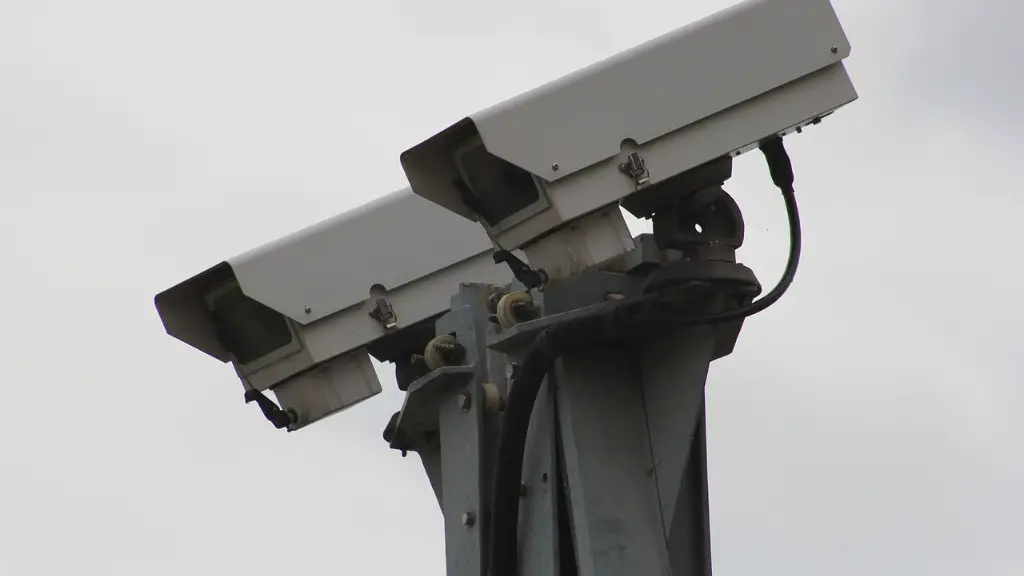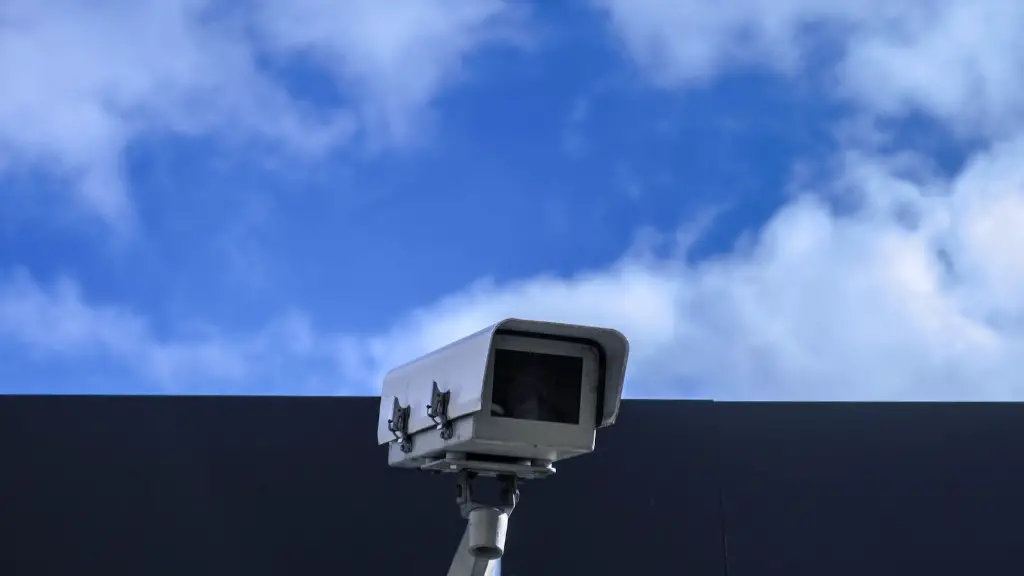What Agency Is The Cia Under?
The Central Intelligence Agency (CIA) is an independent agency of the United States government responsible for providing intelligence to the President of the United States and senior policy makers. Created in 1947 by the National Security Act, the CIA has operated for more than 70 years and is among the most secretive government agencies in the world.
Prior to 1947, the United States relied on a complex series of inter-agency intelligence sharing agreements, which were often fraught with policy disagreements. The National Security Act of 1947 created a centralized Intelligence agency tasked with collecting and analyzing intelligence from around the world. The Act also established a National Security Council to help coordinate intelligence related to national security.
The CIA was then established by the President and became part of the Executive Office of the President. The CIA is both an intelligence gathering and analysis organization as well as an independent agency. This independence gives the CIA the freedom to influence policy and decision making processes, however it is still subject to congressional and judicial oversight.
Today, the CIA is a part of the United States Intelligence Community, which is composed of 17 other agencies spanning the Departments of Defense, Homeland Security, and Justice. Each agency is tasked with a specific purpose and focus, with the CIA responsible for the primary task of intelligence gathering, analysis and delivery to senior policy makers.
The CIA is divided into four main directorates. The first is the Directorate of Analysis (DI), which is responsible for analyzing collected intelligence, synthesizing it into usable information, and presenting it to policy makers. The second is the Directorate of Operations (DO), which conducts clandestine operations, including recruiting agents, gathering intelligence, and undertaking covert action. The third is the Directorate of Science and Technology (DS&T), responsible for research and development, as well as technology deployment and cyber operations. And finally, the Directorate of Support (DS), which is responsible for the management of personnel, logistics, and administrative needs.
As part of the Intelligence Community, the CIA works with other agencies and organizations to collect, analyze and disseminate intelligence. The Director of the agency serves as a cabinet-level position, reporting to the President and attending cabinet-level meetings as required. In addition, the CIA is also subject to oversight from the Senate Select Committee on Intelligence and the House Permanent Select Committee on Intelligence. The CIA also releases information to the public to keeps citizens informed of important intelligence related events.
The Role of the CIA in National Security
The CIA’s primary mission is to gather and analyze intelligence in order to provide an accurate assessment of the global security environment. This assessment helps officials make well-informed decisions regarding national security policy. The Agency’s goals include gaining accurate intelligence on foreign countries, deterring foreign aggression, understanding the motives and intentions of foreign governments, building alliances, and assessing the strength of foreign governments.
The CIA generally works with US personnel stationed in countries around the world that are responsible for gathering information and intelligence. These personnel are often tasked with tasks that are too sensitive for regular military personnel. In addition, the Agency works with foreign intelligence services and organizations to gain foreign intelligence information.
In order to protect the nation’s security, the Agency works to identify and disrupt threats from foreign adversaries, terrorists, and criminals. The CIA is responsible for conducting cyber and physical surveillance to inhibit these threats, as well as analyzing and dismantling critical networks that are associated with hazardous operations. To enhance these efforts, the Agency also works with partner nations and international organizations to disrupt transnational criminal activity.
The CIA maintains an extensive network of international stations that allow it to respond quickly to threats. Some of these stations possess offensive capabilities or the ability to conduct covert operations. In addition, the Agency works to support broader US Government objectives, applying their skills and resources to collect intelligence and developing plans to help shape US foreign policy.
CIA Resources and its Impact on National Security
The CIA’s resources plays an important role in protective the nation’s security. The Agency is armed with a wide range of tools and techniques, including satellite imagery, clandestine human source operations, and cutting-edge technology. In addition, the CIA maintains an extensive network of foreign stations that are used for gathering intelligence and conducting operations.
Through these array of resources, the CIA has the capacity to obtain information from nearly every corner of the globe. It works with partner nations and international organizations to disrupt transnational criminal activity and terrorists’ networks. In addition, the Agency works to counter new threats, such as information warfare operations and electromagnetic threats, as well as cyber threats.
The CIA also works to analyze and integrate information from a variety of sources to form a comprehensive intelligence picture. This intelligence picture is used to shape U.S. foreign policy objectives. It also serves as the foundation of the decision-making processes in the White House, Pentagon, and other government agencies, allowing officials to make strategic decisions rapidly and effectively.
Authorization and Oversight of the CIA
The CIA is subject to stringent authorization and oversight measures by both the Executive and Legislative Branches. The President must sign off on all orders issued by the CIA and as well as provide legal authorization and oversight. Additionally, both the Senate and House of Representatives have established Select and Permanent Committees to oversee the actions and operations of the CIA.
The CIA is subject to the Freedom of Information Act, which provides citizens the right to access some of the Agency’s information and records. Additionally, congressional and agency-level reports provide regular oversight and accountability to the public for the CIA’s operations and activities.
The CIA is also subject to criminal penalties and civil liability. The US Government Accountability Office audits the CIA’s spending and subject it to public reporting and oversight. The CIA must adhere to strict guidelines and regulations and comply with US laws and international treaties.
Relationships with Other Intelligence Agencies
The CIA works closely with other intelligence and law enforcement agencies to ensure the security of the United States. For example, the CIA works closely with the National Security Agency (NSA) and Federal Bureau of Investigation (FBI). In addition, the CIA works closely with other Five Eyes countries, including the United Kingdom, Australia, Canada, and New Zealand.
The CIA often works closely with the Department of Defense, whose mission is to protect the United States from foreign adversaries and threats. The CIA works closely with the DoD to gain insight into intelligence and threat assessments, and to understand the maneuvers of both state and non-state actors.
The CIA also works closely with the Department of State to gain insight into foreign relations, as well as assess the influence of US policies in other countries. The CIA works with the State Department to obtain political, economic, and foreign policy assessments of other countries.
In addition, the CIA has relationships with international and non-government organizations (NGOs) to gain intelligence and aid in their efforts to fight global threats. The Agency works closely with the United Nations, Interpol, and other international bodies to ensure the safety and security of US citizens.
Conclusion
The Central Intelligence Agency is an essential part of the United States Intelligence Community and plays an integral role in protecting national security. The CIA is an independent agency with the freedom to shape policies, however it is still subject to oversight from Congress and the President. The CIA works closely with partner nations and other intelligence agencies to collect, analyze and disseminate intelligence, and support US foreign policy. It is also subjected to authorization, oversight and accountability regimes to ensure that it is adhering to US laws.





